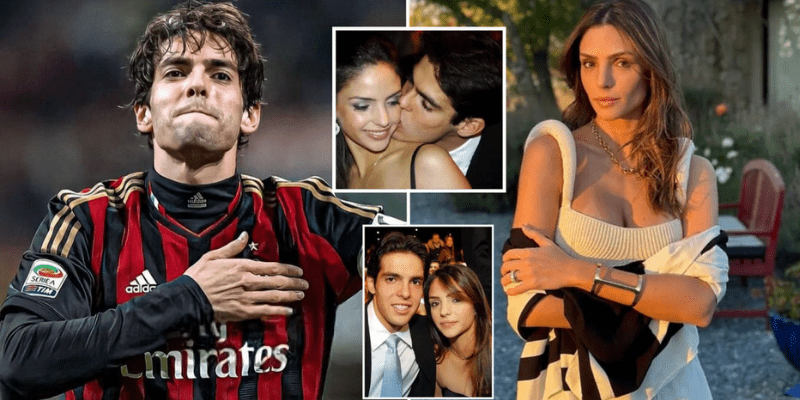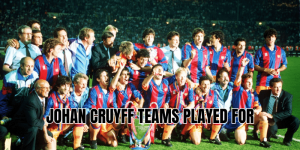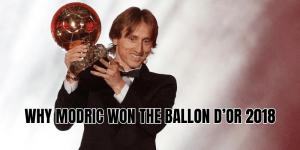Ricardo Kaká appeared to have it all: dazzling football skills, wealth, fame, and a glamorous marriage. Yet in 2015, after nearly a decade together, his wife Caroline Celico decided to end their union. Why Kaka’s wife left him has since become a topic of intrigue and speculation. In this article, DaoKick delves into the known facts, the revelations, and the emotional dimension behind one of football’s most surprisingly quiet breakups.
The love story: Kaka and Caroline Celico

Kaká and Caroline’s romance began in São Paulo. Caroline Nistal Celico was born in 1987, raised partly by a single mother after her parents divorced when she was young. She attended St. Paul’s School in São Paulo, where she first crossed paths with Kaká in 2002.
They married on December 23, 2005, in a religious ceremony under the Reborn in Christ church—a faith that would deeply intertwine in their early years together. edia]) Over the next decade, the two had two children: a son, Luca, and a daughter, Isabella.
While Kaká’s football journey took him from São Paulo to AC Milan to Real Madrid and back, Caroline ventured into spiritual and social work. She became an evangelical pastor, then later founded a non-profit organization called Horizontal Love, focusing on charity, education, and social support.
Yet, after about 10 years of marriage, the couple announced their separation in 2015. The public knew few details at the time—and for years, speculation swirled.
Caroline’s revelations: “He was too perfect”

In April 2024, Caroline broke the long silence. In interviews and statements, she claimed the reason she divorced Kaká was that he was “too perfect”—a line that stunned many fans and observers.
Her exact words have been quoted as:
“Kaka never betrayed me, he treated me well, he gave me a wonderful family, but I was not happy, something was missing. The problem was, he was too perfect for me.” TV Sports])
This notion implies that Caroline viewed perfection—faithfulness, kindness, devotion—as a double-edged sword. She seemed to suggest that although Kaka fulfilled nearly every external expectation of a partner, internally she felt unfulfilled. The caring, reliable partner she had may also have become a standard she couldn’t match or perhaps one she felt trapped by.
Caroline emphasized that infidelity or betrayal were never factors. She stated explicitly: “Kaká never betrayed me … but I was unhappy.”
Her framing turned heads—because usually divorce stories in sports are tied to scandals, money, or stress. But here was a claim rooted in emotional void, incompatibility of inner worlds, and the weight of perfection.
Emotional complexity behind a seemingly simple reason

When someone says “he was too perfect,” it may sound like a romanticized excuse—but psychologically, such a statement can carry deeper layers:
- Pressure of expectations: Living with someone considered “perfect” may feel oppressive. Every small failure or disagreement might feel magnified.
- Loss of spontaneity: Perfection often demands consistency and control. A relationship needs room for flaws, improvisation, and imperfection to feel alive.
- Internal dissonance: One can admire another’s qualities yet feel out of sync with them—emotionally, spiritually, or philosophically.
- Desire for growth: If one partner changes or grows and the other remains anchored, even “perfection” may feel stagnant.
In Caroline’s case, her journey included shifts in faith and deep engagement with social activism. These personal evolutions may have contributed to internal distance despite outward harmony.
Kaka’s perspective: attempts to save the marriage
While Caroline has spoken at length, Kaká’s side of the story is more reserved. In some media, he is reported to have claimed he did everything in his power to preserve the marriage—gifts, gestures, reading on relationship dynamics—but ultimately had to accept her choice.
He has reportedly said that in love and marriage, sometimes you cannot force someone to stay who no longer wants to.
Given Kaká’s public persona—devout Christian, family man, respected athlete—it’s clear he viewed marriage as sacred. The fact that even he could not forestall the split adds emotional weight to Caroline’s claim: sometimes the pain isn’t betrayal, but being emotionally disconnected.
After the split: new chapters, shared respect
After the divorce, both Kaká and Caroline moved forward. Kaká later entered a relationship with model Carolina Dias, and the two married (or became engaged) in subsequent years. Caroline remarried Eduardo Scarpa Julião in 2021 and in 2024 welcomed their son Rafael.
On co-parenting, the ex-couple has attempted to manage with mutual respect, ensuring their children remain a priority. Caroline’s recent public statements suggest she no longer harbors resentment and views the divorce as a difficult but necessary step.
Their post-divorce lives reflect themes of growth, acceptance, and new love—often reflecting what she described as something missing during the marriage rather than blame.
Was there more behind the scenes?
While Caroline’s revelation is the most concrete explanation, one cannot rule out other subtle pressures:
- Public scrutiny: As a global star, Kaká’s life was always under a microscope. The stress of fame can leak into personal relationships.
- Religious shifts: Caroline’s departure.
- Isolation in success: In many celebrity marriages, one partner’s success can create distance—especially when life is defined around schedule, image, and duty.
- Communication gaps: Over time, even ideal couples can drift due to emotional misalignment and failure to voice inner changes.
However, none of these have been publicly confirmed. They remain speculative, whereas Caroline’s “too perfect” explanation is the only detailed reason she has provided.
Lessons. Perfection isn’t a panacea
We often treat perfect partners as foolproof. But perfection can mask emotional emptiness. Admiration may replace intimacy.
Emotional alignment matters more than appearances
It’s possible to live well outwardly and suffer inwardly. Compatibility goes beyond virtues—it demands shared struggles, vulnerabilities, and growth.
Long-term relationships demand reinvention
People evolve. Without adaptation, even lovingly built relationships can become parallel lives instead of shared paths.
Silence can hide deep truths
For years, the public embraced the idea of Kaká’s perfect marriage. It took Caroline’s courage decades later to speak her truth—and shift the narrative.
Final Thoughts
Why Kaka’s wife left him cannot be boiled down to scandal, money, or betrayal. Caroline Celico’s own words emphasize that she left not because he did something wrong—but because in her heart, something was missing. She painted a portrait of a relationship that was flawless in the eyes of many, yet emotionally incomplete, DaoKick reminds readers: even in the lives of legends, complexity and fragility reign. The most beautiful of gestures may hide inner voids. And sometimes, the hardest choice is to walk away—not into anger, but toward authenticity.
If you found this insight compelling, stay with DaoKick for more stories of football legends, their triumphs, and the shadowed chapters behind their fame.



